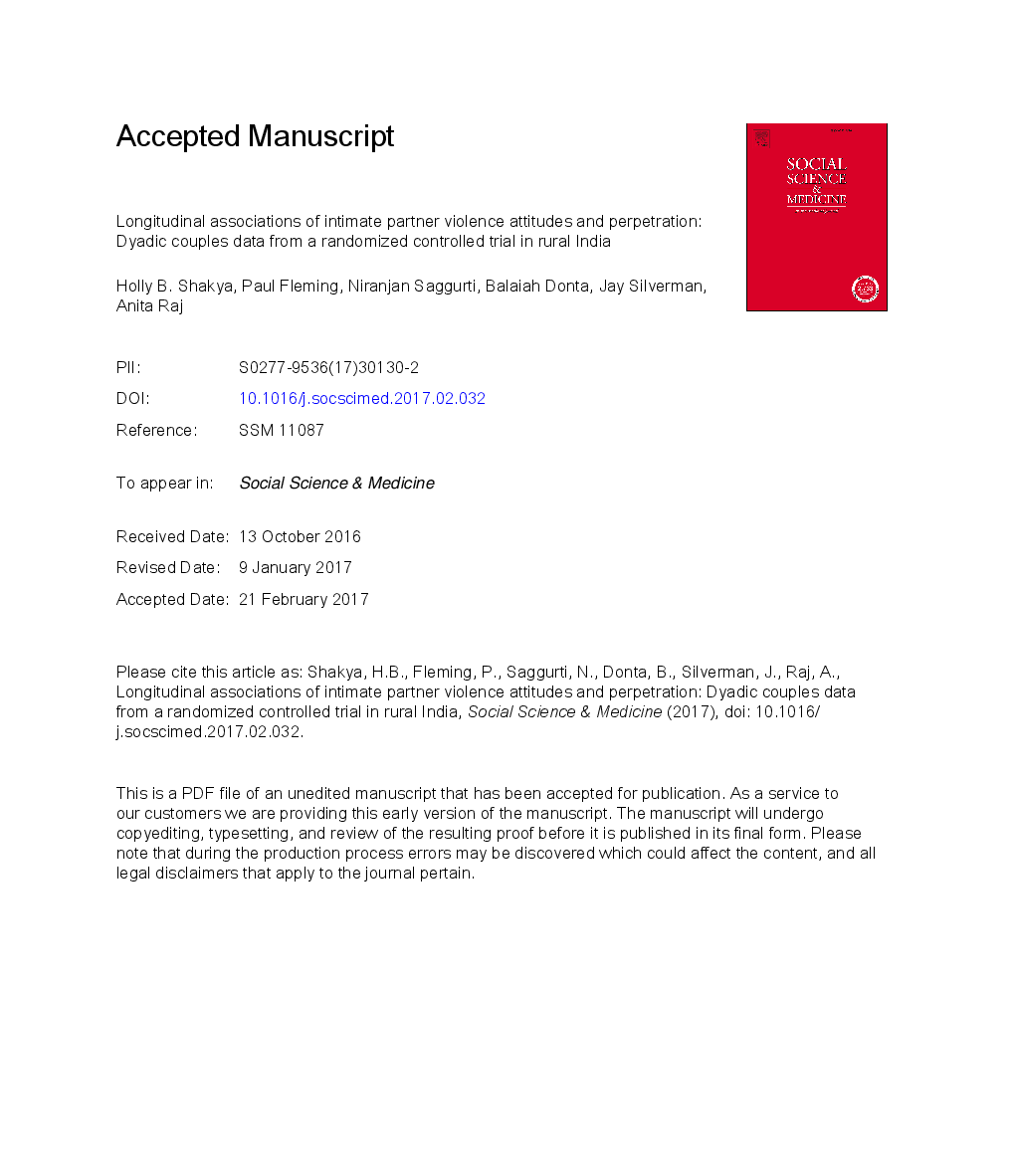ترجمه فارسی عنوان مقاله
انجمن های طولانی از نگرش های خشونت شریک صمیمانه و انجام: داده های زوج های زوجین از یک پرونده کنترل تصادفی در هند روستایی
عنوان انگلیسی
Longitudinal associations of intimate partner violence attitudes and perpetration: Dyadic couples data from a randomized controlled trial in rural India
| کد مقاله | سال انتشار | تعداد صفحات مقاله انگلیسی |
|---|---|---|
| 129686 | 2017 | 32 صفحه PDF |
منبع

Publisher : Elsevier - Science Direct (الزویر - ساینس دایرکت)
Journal : Social Science & Medicine, Volume 179, April 2017, Pages 97-105
ترجمه کلمات کلیدی
خشونت شریک صمیمی، هنجارهای اجتماعی، هند، آزمایش تصادفی کنترل شده، نگرش های، اطلاعات زوج سطح،
کلمات کلیدی انگلیسی
Intimate partner violence; Social norms; India; Randomized controlled trial; Attitudes; Couples level data;

